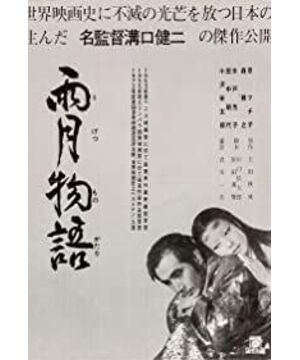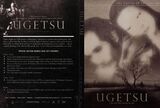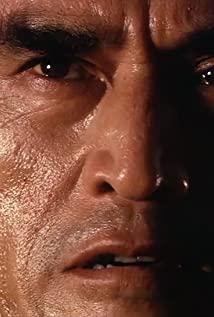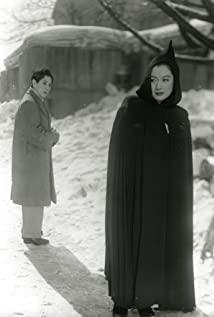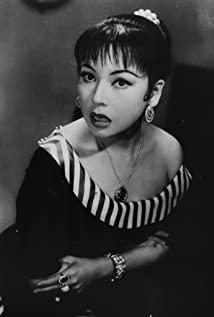Han Yuefu: "It will be difficult in the future, and your mouth will be dry; if you are happy today, you should all like it." The "difficulty" of dry lips has already begun; but if you can enjoy each other, you should still like it. Therefore, on the first day of the May Day holiday, I stayed at home, made tea and read. In the evening, I chose a copy of Kenji Mizoguchi's "Story of the Rain Moon" and read it. Now I am sitting at the table and writing a short review to show my respect.
At the beginning of "Story of the Rainy Moon", in a small mountain village near Lake Biwa during the Warring States Period, there lived Genjuro (played by Mori Yazhi) and his wife Miyagi (played by Tanaka Kinyo), as well as his brother-in-law, Fujibee (played by Ozawa Rong), and his younger sister Ah Hama (Mito Mitsu). They made a living by opening small porcelain kilns and firing porcelain. During the war, Genjuro wanted to take advantage of the war to make a fortune, while Fujibei wanted to become a samurai and get ahead.
When Genjuro first entered the city to sell pottery, the village chief went to persuade his wife to say that taking advantage of the war to make a little fortune is not a long-term solution. Be prepared early. She took the child to thank you: Thank you for your kind words.
In the evening, Genjuro came back, earning money and was very proud, bought a new kimono for his wife, added a lot of things to the children and the family, and vowed to continue to realize the skill of painting and burning porcelain and make more money, the wife gently persuaded War is coming...and we have enough money. In case you have three long and two short...
Genjuro, who had been drinking, said with a wave of his hand that war money is best earned...
Therefore, he became obsessed with money, and after escaping the first rebellion, he and his brother-in-law and sister left their hometown with the good-quality china that had been fired to the town to sell, leaving his wife and children at home to wait for him to come back. Genjuro really made a lot of money, and even met a beautiful noble lady Wakasa (played by Jing Machiko), the joy of rain and cloud, and she was not thinking about Shu.
But in the end, it was discovered that this noble lady was a ghost. Later, with the help of the monks, he survived, but the money was taken away by the rebels... And although Fujibei was wrong, he got his wish and became a samurai. He was lucky and met a beautiful thing. He was so majestic, but when he was looking for happiness, he met his wife who had already been ruined by the samurai and was reduced to the dust... And Miyagi and the children were killed by the rioters long ago.
The strange thing is that when Genjurou returned home, he found that his wife was still cooking for him. The death of his wife was only known to the neighbors when he woke up the next day.
The film "Rainbow Moon Story" was nominated for the Golden Lion Award at the 14th Venice Film Festival and won the 28th Academy Award. Of course, it is not only the deceitful and bizarre story of the story, but also its conception and imagery. first class. The part of the film when sailing in the fog is comparable to Tarkovsky and Theo? Angelopoulos' use of the imagery of landscapes in the fog, coupled with Japanese classical music, is more oriental.
"The Story of the Rainy Moon" is adapted from the short stories "The House of Asakusa" and "The Serpent's Prostitution" by Ueda Akicheng. This is an ancient Chinese strange novel, an ancient history legend, a story book, and even as common in "Strange Tales from a Liaozhai" But Mizoguchi Kener presents the writing metaphors, extraordinary imagination and mirror images in these ancient legends one by one through images, forming a different artistic conception and aftertaste that surpasses the times. In the past and present, all kinds of unfreedom, such as those secret experiences, implicit despair, evil and debauchery that dare not or do not need to be reported in the hearts of modern people, also have the possibility of sustenance or exorcism. All this, without any trace of preaching and thought-provoking. Just understand, so be compassionate.
The sadness of Chinese films lies in the contempt or even disregard for ancient strange novels, stories, legends, and even "Strange Stories from a Studio", and even the adapted works have no charm of the original, and are changed into rubbish with strange power and chaos. many. Since Hu Jinquan's generation of masters, few masterpieces are worthy of such good writing.
When watching this film, I did think of "The Legend of the Mountains" directed by Hu Jinquan. The picture may be comparable to Mizoguchi, and even more ethereal and Zen than "The Story of the Rainy Moon". However, the idea and aftertaste of the story are less heavy than Mizoguchi's. Perhaps director Hu Jinquan doesn't value the so-called "heavy", or the story itself, he is more transcendental and free and easy.
In terms of conception, the selection of the background of "war" in "Story of the Rainy Moon" is also more WTO-friendly than the "copying scriptures" in "Legend of the Mountains". Therefore, there are more obvious image shocks to the mundane world, which reminds me of Brecht's "Bold Mother and Her Children". Viewers can watch it as a war movie, or they can replace war with other secular things, such as tyranny, system, consumerism, anti-intellect, traffic, and various temptations. ... In short, "war" is just a metaphor. "War" can make you money, but it can also destroy your mind, your wife and children, and your life.
This is also what I think Mizoguchi Kenji and Hu Jinquan are very good at. They rarely see the refraction of literature in the strange novels, and when they see literature, they learn from the heart. They must know that the wild imagination and complicated images in ancient mythical novels, legends, and stories are no less than Western Beckett, Borges, Kafka, Márquez, Calvino, and Vonné. Gut, Bolaño, even Ellen. Poe, Baudelaire, Koizumi Yakumo, etc., the modernity presented in the symbolism or postmodern steampunk, because the so-called modernity may be consistent with the classical nature in essence, and what it shows is the timeless. Something that has changed - is a reflection of human beings as mortals, pursuing divinity, exoticism and absurdity, as well as their own limitations.
View more about Ugetsu reviews


